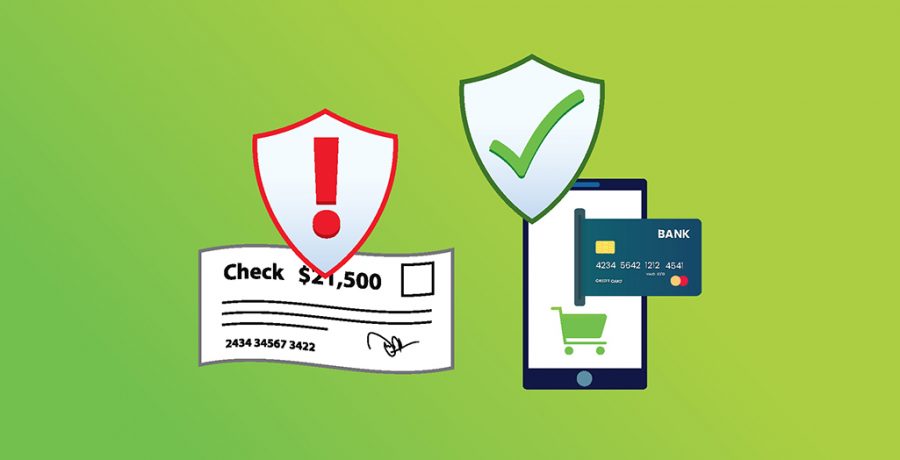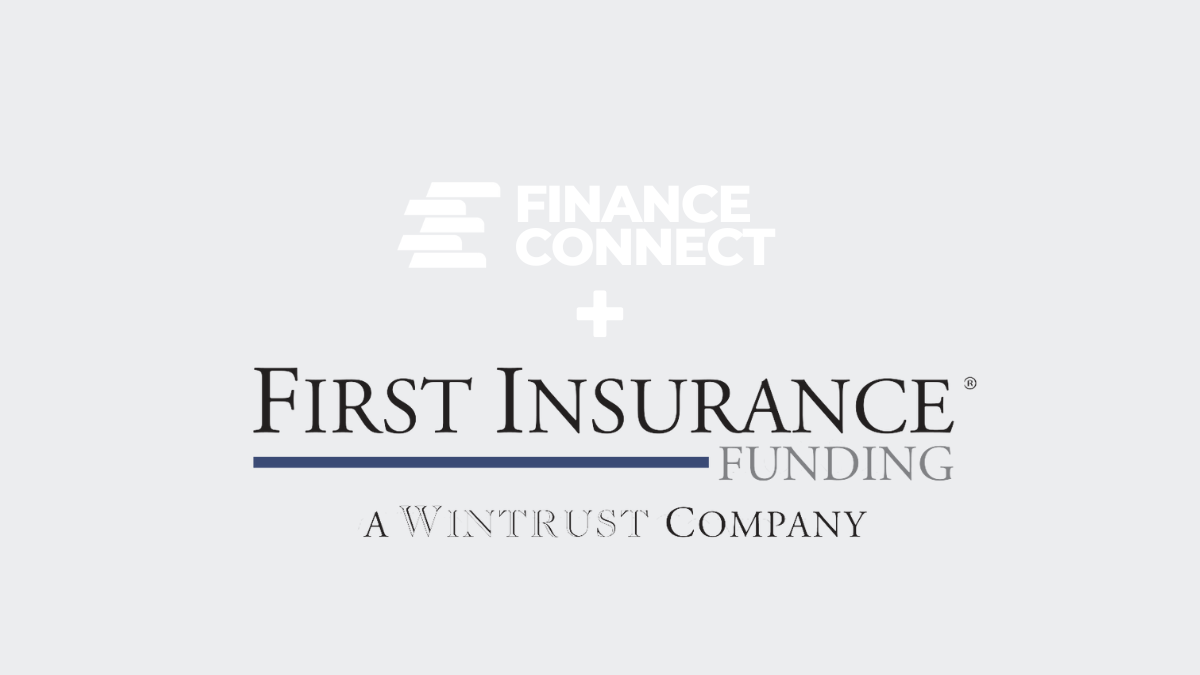Why do people buy insurance? For protection. It’s ironic, then, that paying for insurance could leave them—as well as your agency—exposed. (Spoiler alert: it doesn’t have to.)
We’re referring to the security risks of paper checks. The insured writes a premium check and drops it in the mail. If everything goes right, the check takes a few days to reach your agency. If it doesn’t, the check could end up… who knows where. Once inside the agency, the check has more opportunities to get stuck in a file folder, under a pile of mail, or accidentally picked up off someone’s desk. It may turn up weeks or even months later. At that point, the check may no longer be cashable. In fact, you could get charged a “deposit item returned” fee from the bank.
Risks to the Insured
The main problem is not the amount of the check; it’s the information on the check. All someone needs to raid your client’s bank account is the routing and account number. Often enough, they don’t even need the name to write an electronic check from the account. But checks also contain other personally identifying information (PII) that thieves steal to wreak havoc with someone’s finances and credit.
Name and address, both printed on a check, are PII. Some people have even been known to include their driver’s license number or Social Security number on their checks (although that’s highly unlikely for a business account). All of this PII is an open invitation for bad actors. Any enterprising imposter can simply copy the information off your client’s check, and they’re off and running.
Risks to the Agency and the Insured
The insured is putting their PII, along with a large amount of money, at risk when they write you a check. Every pair of hands that touches the check could fraudulently cash it and/or steal the insured’s identity. This might not be likely to happen within your agency, we know you manage a top-notch, respectable workforce. But the risk of really anyone (e.g., technicians, sales reps or other visitors) taking a paper check is there.
As the payee, you assume some risk for that payment as well. If something happens to the check along the way, the insured could hold your agency responsible. It costs them money to put a stop payment on the check, and if you do find the check and deposit it at the wrong time for the client, it can bounce. Nobody wants those extra bank fees.
The Better, Safer Payment Option
Of course we’re not going to leave you without a solution to these security risks! You can eliminate them by accepting digital payments with ePayPolicy. On top of being faster, simpler and more convenient for the client, digital payments are incredibly more secure than checks.
ePayPolicy is also PCI compliant. That means we take full responsibility for the data security of your insureds’ digital payments. We don’t store payment information unless they ask to set up an account. Even then, it’s all encrypted. We never see it, and cyber thieves never could
Here’s a link, in case you missed our blog on the importance of PCI compliance for your agency.
In Summary
Whereas checks are inherently risky, we make digital payments safe. The ePayPolicy platform is hack-proof, and we’re constantly testing it to ensure the highest level of security. If you’re ready to provide the safest payment option to your insureds, sign up or schedule a demo here.
- Steve Millerhttps://epaypolicy.com/blog/author/steve-miller/
- Steve Millerhttps://epaypolicy.com/blog/author/steve-miller/
- Steve Millerhttps://epaypolicy.com/blog/author/steve-miller/
- Steve Millerhttps://epaypolicy.com/blog/author/steve-miller/



